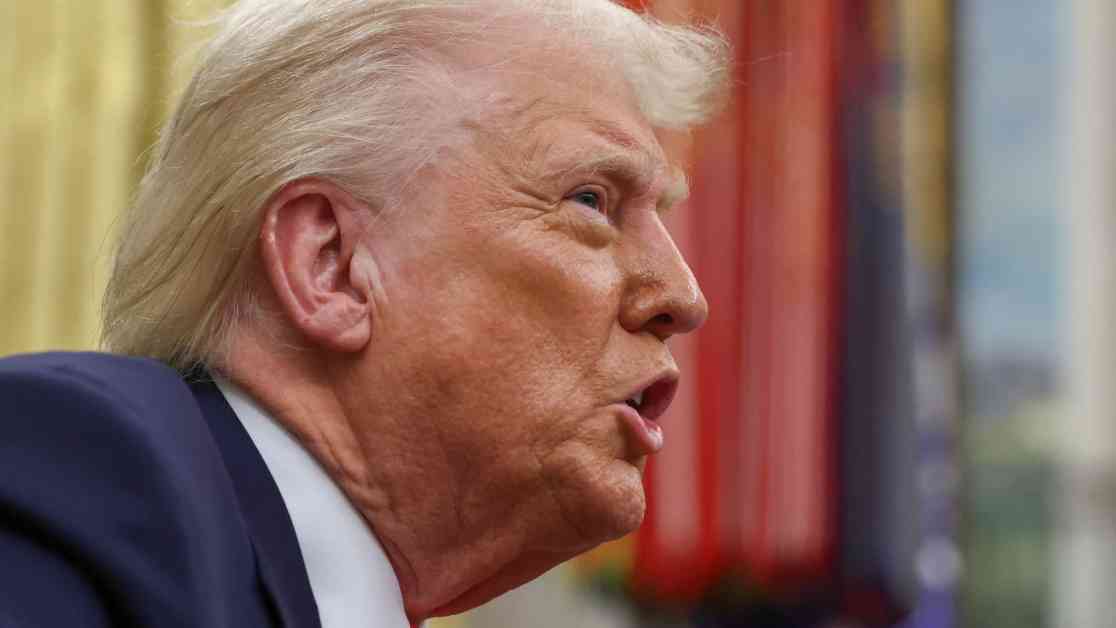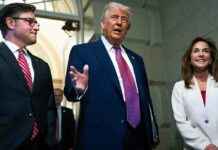President Donald Trump is once again at the center of controversy, this time due to the recent stock market decline that has left investors rattled and uncertain. As major stock indices experienced a sharp drop this week, many have pointed fingers at Trump’s ever-changing tariff policies as the cause of this turmoil. However, when confronted about the impact of his tariffs on the economy during a press event in the Oval Office on Thursday, Trump offered a different perspective.
In response to questions about whether his tariffs were to blame for the market downturn, Trump shifted the focus to what he called “globalists” – countries and companies that he believes have taken advantage of the United States for years. Without providing specific details, Trump claimed, “We’ve been treated very unfairly as a country,” emphasizing the need to reclaim what was lost in the past.
Throughout the press event, Trump continued to blame “globalists” for the market instability, expressing his belief that these entities are threatened by the economic prosperity of the United States. While his use of the term “globalist” remained vague and open to interpretation, it is clear that Trump holds strong opinions about the impact of these forces on the country’s economic well-being.
In his first term, Trump has frequently criticized what he refers to as “globalism,” suggesting that some individuals and organizations prioritize international interests over those of the United States. While his nationalist and isolationist approach has garnered support from some quarters, it has also sparked controversy and criticism, particularly for its associations with anti-Semitic conspiracy theories.
The term “globalist” has been scrutinized by various groups, including the American Jewish Committee, which warns that it is often used as a veiled reference to Jewish people who are perceived as undermining Western society for their own gain. Trump’s use of this term to explain the fluctuations in the stock market adds another layer of complexity to an already contentious issue.
Despite the uncertainty surrounding Trump’s remarks, one thing is clear: his administration’s tariff policies have had a significant impact on global trade relations. With recent tariffs imposed on Canada and Mexico, followed by temporary exemptions for certain goods, the White House is navigating a complex economic landscape that is closely tied to international partnerships and agreements.
As Trump continues to defend his trade policies and their implications for the economy, the broader implications of his actions remain to be seen. While he denies that the recent market volatility is directly linked to his tariffs, he acknowledges that there may be short-term disruptions as the country adjusts to a new economic outlook.
In the midst of this uncertainty, Trump’s rhetoric on globalism and its impact on the economy raises important questions about the future of U.S. trade relations and the role of international cooperation in a rapidly changing world. As the debate over tariffs and globalism continues to unfold, one thing is certain: the stakes are high, and the decisions made in the coming months will have far-reaching consequences for the global economy.

























